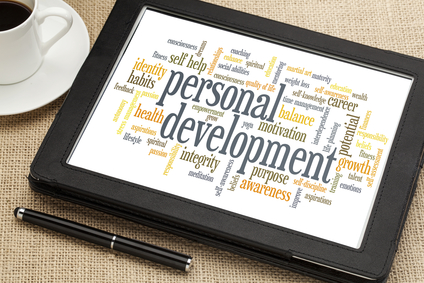A few days ago, I was working on a presentation in which I had to do quite a bit of work. It involved reading through a number of profiles and summarizing them into a format that would be easy to read in my presentation software.

It was a bit tedious at first, but I found myself becoming quicker and more effective at the task. Not only that, I began to ignore the things that usually distract me on the internet. I dedicated all of my focus on the presentation and almost felt myself being “sucked in” to my work.
Suddenly, I heard a knock on the door. My co-worker poked his head in to tell me that the office was closing. I had become so engrossed in what I was doing that I had not even noticed that it was time to leave!
I was in flow.
What is flow?
Flow is a term coined by psychology professor Mihaly Csikszentmihalyi. Simply put, flow is an automatic, effortless yet highly focused state of consciousness you can experience when devoting yourself to a meaningful challenge. When you’re in flow, your sense of time is altered and your concentration deepens.
With flow allowing workers to perform at their highest possible level, a state known as optimal performance, it is easy to see how this can provide benefits in the workplace.
The question of flow in the workplace is how to achieve it.
Attaining flow isn’t easy – in fact it can prove often downright elusive. Even I myself have only occasionally been able to get into flow. However, there are ways to increase your chances of getting into flow.
How to get into flow
1. Establish priorities
Deciding and working on only the most important task is one way to increase your chances of getting into flow. By doing so, your mind will be less burdened by tasks that are less important and that might distract you from focusing on a task.
Because I was focused on finishing my presentation, I was able to ignore everything else and prioritise my task, allowing me to focus and more easily get into flow.
2. Get comfortable
Your personal surroundings are an important factor in allowing you to achieve flow. If you are comfortable both physically and mentally, you will be less likely to become distracted, facilitating the opportunity for flow to occur.
There are many different aspects to consider – for example the atmosphere, clothes you wear, and even working relationships can affect your likelihood of getting into flow. If I wasn’t in a physical and mental comfortable state, I probably wouldn’t have been able to get into flow and complete my presentation!
3. Match the challenge of your work with your skills
In order to get into flow, it is important to have a balance between the challenge of your task and your personal skills. When these two are out of alignment, you will either be too bored or too frustrated to achieve a flow state.
Instead of simply going on with your regular schedule, restructure your work in a way in which your skills and the challenge of the task are balanced in order to attain a flow state. Because of the fact that my presentation challenged my skills without overwhelming me, I was able to achieve the balance so important in achieving a flow state.
You don’t have to be a drone just living out a boring work life while being unproductive. By working to attain flow, you too can increase your performance and become more effective and efficient at work. Not only that, but being able to perform at your best for long periods of time will also help you to have a more fulfilling work life.
Why not leave a comment and tell us how you get into the flow.















